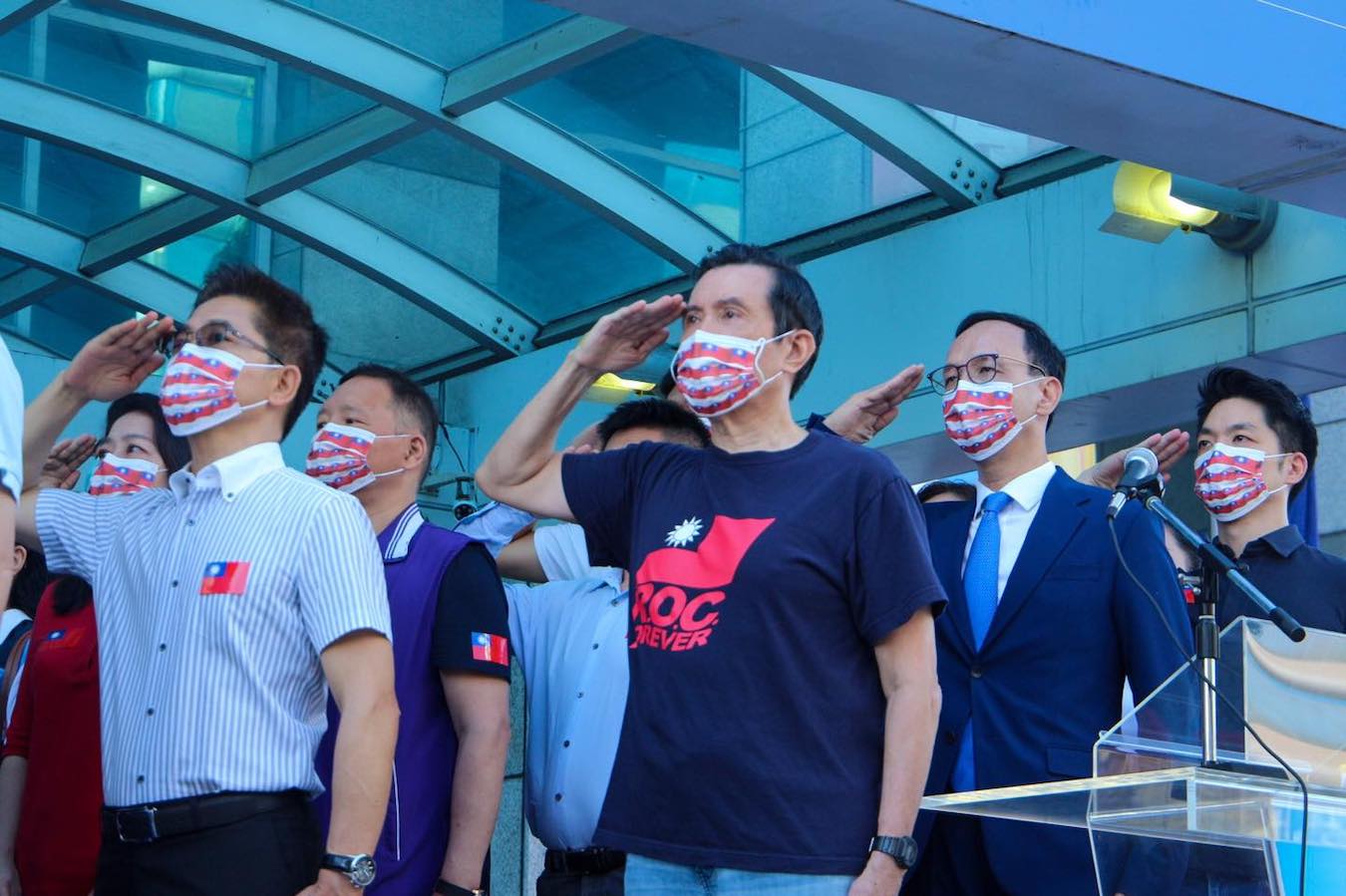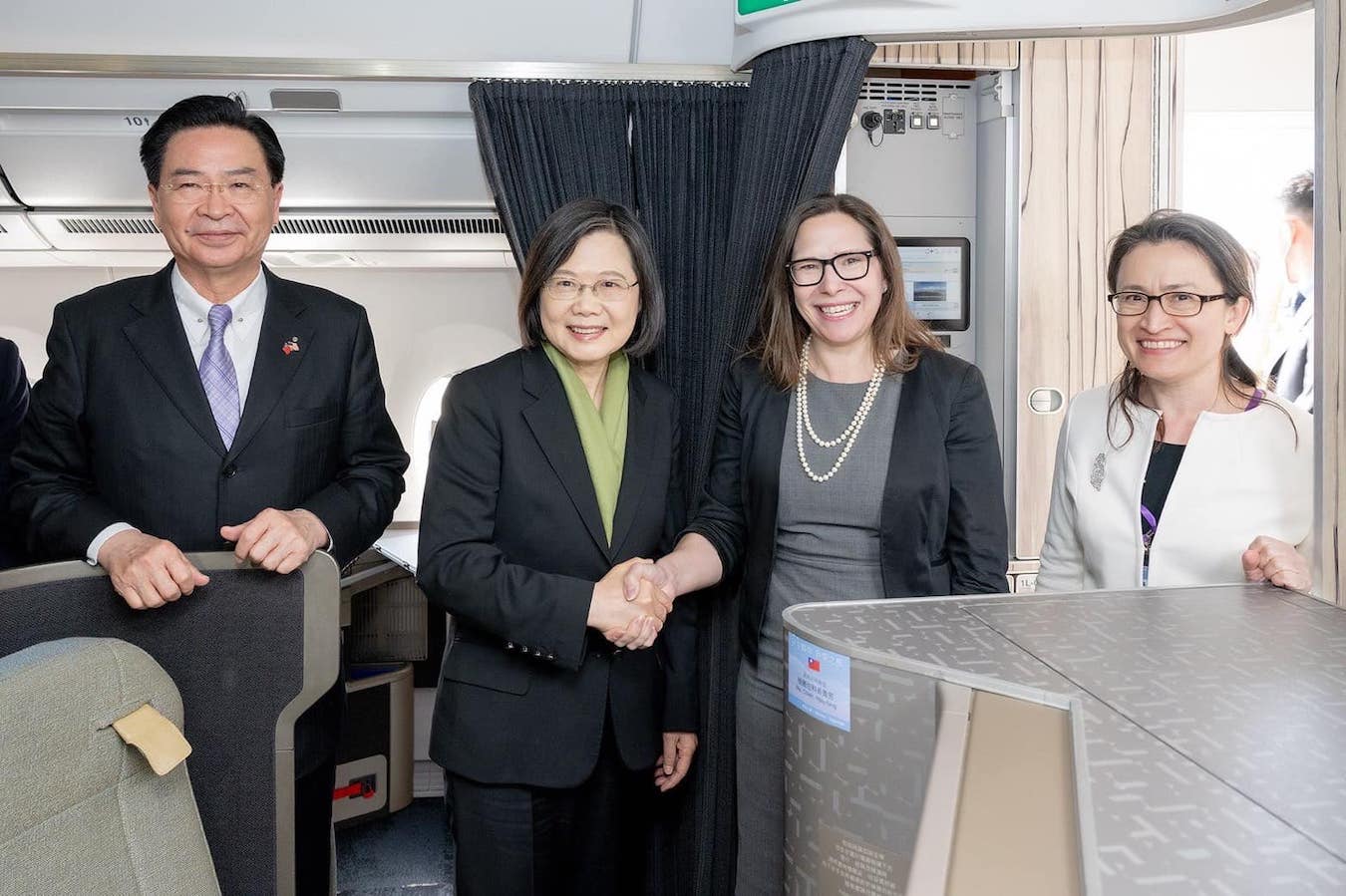by Brian Hioe
語言:
English
Photo Credit: Ma Ying-jeou/Facebook
FORMER PRESIDENT Ma Ying-jeou of the KMT set out for a twelve-day trip to China on Monday. This proves Ma’s first trip to China, though Ma previously met with Chinese president Xi Jinping in Singapore in November 2015.
Ma himself claims that he has looked forward to the trip for 36 years, as according to the former president, this is his first trip to China. Ostensibly, Ma is visiting in a private capacity, and aims to reduce cross-strait tensions through the trip. As Ma will be visiting over the Tomb Sweeping Holiday, a traditional occasion to visit the tombs of ancestors, Ma’s trip serves to accentuate heritage claims that Taiwan are Chinese because the ancestors of most Han Taiwanese are from China.
Ma will not meet with Chinese president Xi Jinping or other government officials as part of the trip, although it is possible that this claim will change down the line. During previous occasions when vice chair Andrew Hsia visited China, it was previously claimed that he would not meet with Chinese government officials–and then this happened anyway. If Ma aims to meet with Chinese government officials, it may be strategic to keep ambiguous on the matter.
 Former president Ma Ying-jeou (center). Photo credit: Ma Ying-jeou/Facebook
Former president Ma Ying-jeou (center). Photo credit: Ma Ying-jeou/Facebook
Ma has already caused consternation on his trip, however, by stating that “We are all Chinese” when referring to Taiwan and China, while framing Taiwanese and Chinese as “descendants of the Yellow and Yan Emperors.” Comments by Ma praising CCP infrastructure development projects, too, or framing Taiwan as part of the Chinese nation in need of revitalization caused outrage.
To this extent, while Ma did refer to the ROC on some occasions, Ma has been scrutinized for omissions of the ROC, such not mentioning the Minguo calendar in calligraphy written at Sun Yat-sen’s mausoleum. Ma was also lambasted for commenting that he had also served as “that” while at the mausoleum, referring to the president of the ROC, but not specifying what was meant by “that.” There would be political sensitivities to Ma referring to himself as “president” of the ROC.
That Chinese state-run media censored Ma’s remarks has, too, not gone unnoticed. Otherwise, from the pan-Green camp, there has been mockery of what is framed as China’s lackluster reception for Ma, in that Ma was not feted as a state leader might.
A number of commentators have juxtaposed Ma’s visit with the widespread news coverage of the shooting death of an escaped baboon in Taoyuan, to suggest that Ma’s visit is mostly an afterthought for Taiwanese as well. Certainly, Ma’s visit is to be juxtaposed to when Xi met directly with other KMT figures following the original Ma-Xi meeting, such as former chair Hung Hsiu-chu or party elder Lien Chan.
To this extent, though there were protests against Ma at the airport and the Taiwan Statebuilding Party has stated that it will protest Ma’s return, Ma’s visit to China did not provoke as much panic as during the original Ma-Xi meeting. In response to the Ma-Xi meeting, Chen Wei-ting and other former Sunflower Movement activists invaded Songshan Airport and attempted to prevent the plane from taking off.
 Tsai Ing-wen. Photo credit: Tsai Ing-wen/Facebook
Tsai Ing-wen. Photo credit: Tsai Ing-wen/Facebook
KMT chair Eric Chu has defended Ma’s visit to China. In the meantime, however, President Tsai Ing-wen will be visiting the US for two stopovers on the way to visit Central American allies of Taiwan. During the visit, Tsai will meet with US Speaker of the House Kevin McCarthy in his home state of California, as well as receive an award from the Hudson Institute in New York. Otherwise, Tsai will not meet with any Biden administration officials during the trip.
China claims that it will retaliate against the trip. During past stopovers by Taiwanese presidents in the US, China has usually responded with military exercises. Likewise, Honduras broke ties with Taiwan shortly before the trip, with foreign minister Joseph Wu stating that he thought the timing was deliberate.
It is likely that the KMT will frame any military response by China regarding Tsai’s stopover as provoked by the DPP. The KMT has historically justified its claim to political legitimacy on the basis of claiming to be the only political party in Taiwan able to maintain stable cross-strait relations with China and one does not expect this to change in the present. At the same time, FoxConn founder Terry Gou, who is likely planning on seeking the KMT’s presidential nomination, is also visiting the US in a similar timeframe to Tsai’s US visit and Ma’s China visit–this is likely also intended by Gou to bolster his presidential chances.

